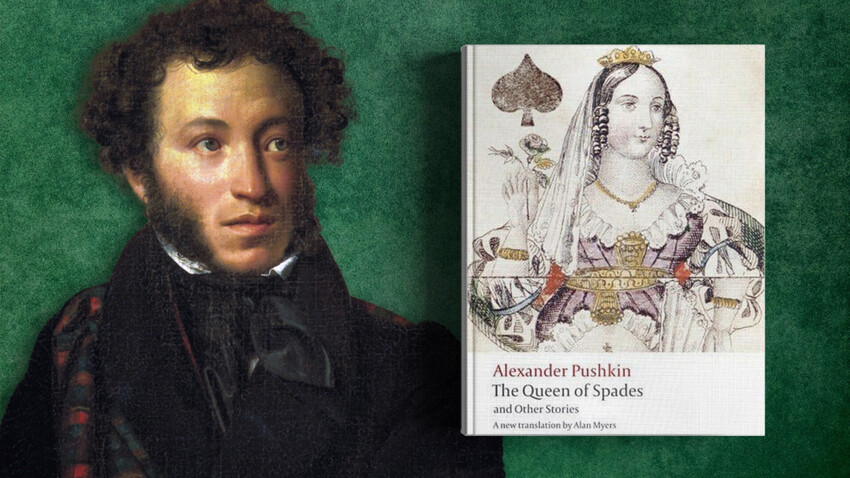
An ethnic German named Hermann, who is an officer in the Imperial Russian Army, has a suppressed passion for card games: he likes gambling so much that he constantly watches other officers playing cards, but never plays himself, because he has no spare money to waste.
Besides, being an ethnic German, he demonstrates ardent financial discipline: he is not ready to risk everything he has to gain what he does not have at the moment. Hermann thinks he believes in the principles of prudence, restraint and diligence, but, deep down in his heart, the man harbors a suppressed urge for quick and easy money.
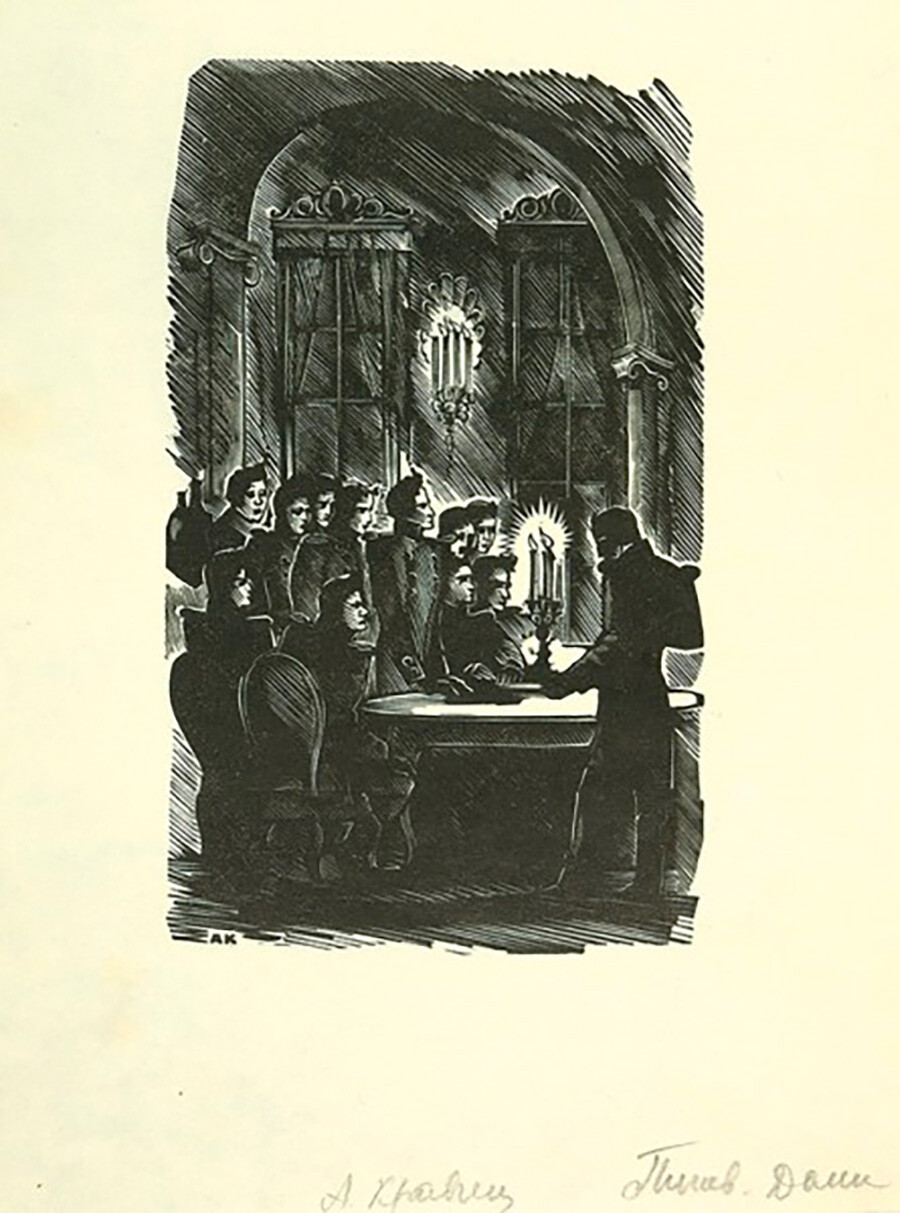
One night, Hermann learns from a fellow officer that his grandmother – an elderly countess – has acquired a mystical secret from none other than Count Saint-Germain, who taught her the secret of the three winning cards. Deeply impressed by the story, Hermann becomes obsessed with obtaining the secret.
To get access to the elderly countess, Hermann starts pursuing her young ward named Lizaveta Ivanovna. Winning over the young lady’s imagination, Hermann persuades her to let him into the house for a night date.
But, instead of going to Lizaveta’s room and professing his love for her as she expects him to do, Hermann appears before the old countess and demands that she reveal her secret to him. When she refuses, Hermann threatens the elderly woman with an unloaded gun and she dies of fright.
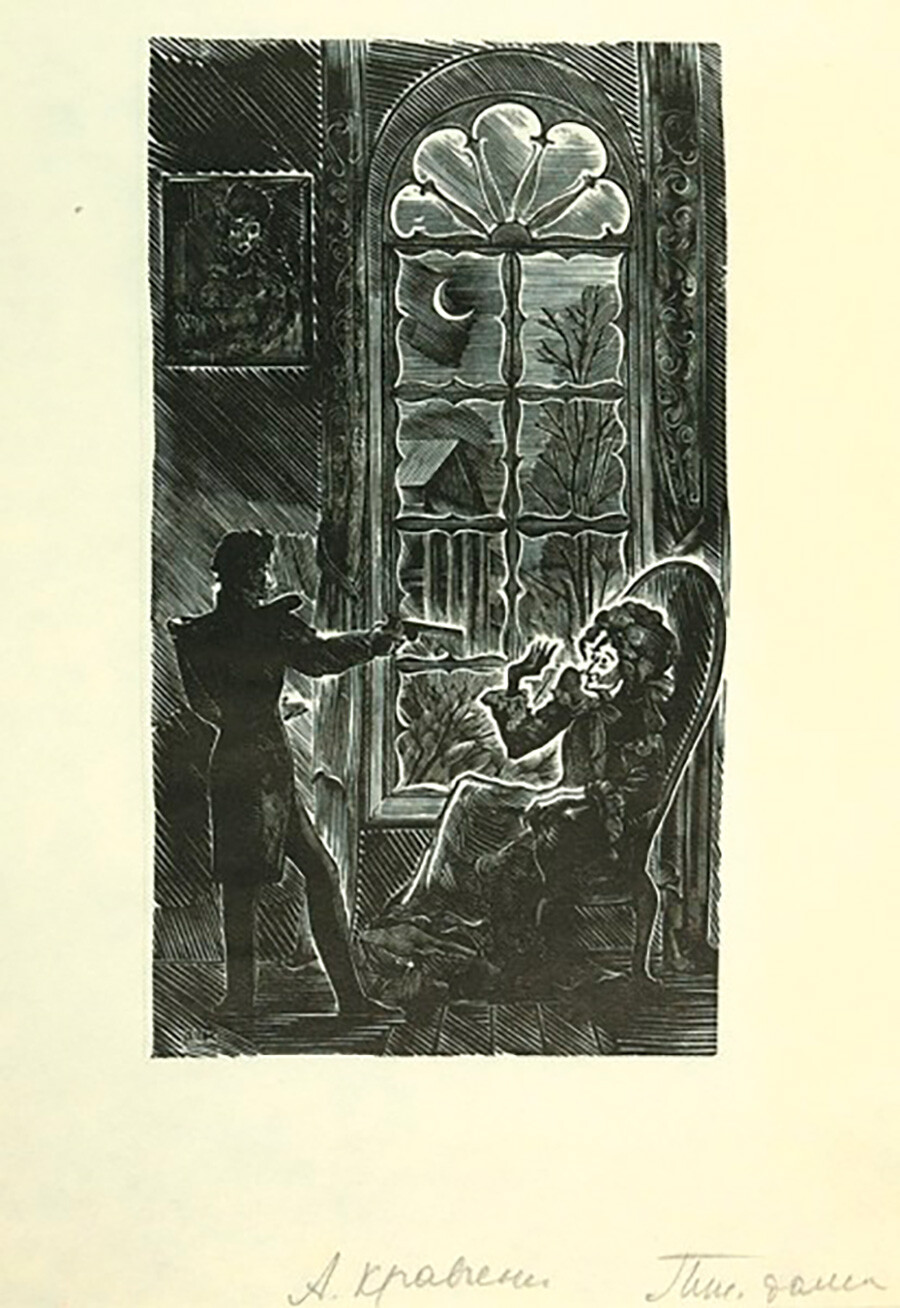
Hermann escapes from the house with the help of Lizaveta, who is disgusted to find out that Hermann’s professions of love for her were nothing more than the veil for man’s greed.
Fearing a reprisal for his sin, Hermann attends the funeral. When he approaches the coffin, he is terrified by a vision he has: the old countess opens her eyes and gives him a malign look.
Later that night, Hermann falls asleep after drinking heavily in spite of himself. During the night, the man has a vision of the supernatural: a ghost of the old countess comes to him and promises to reveal the secret of the three cards if Hermann promises to play only one hand every night and to marry her ward Lizaveta. Hermann agrees and the ghost reveals the winning cards: a three, a seven and an ace.
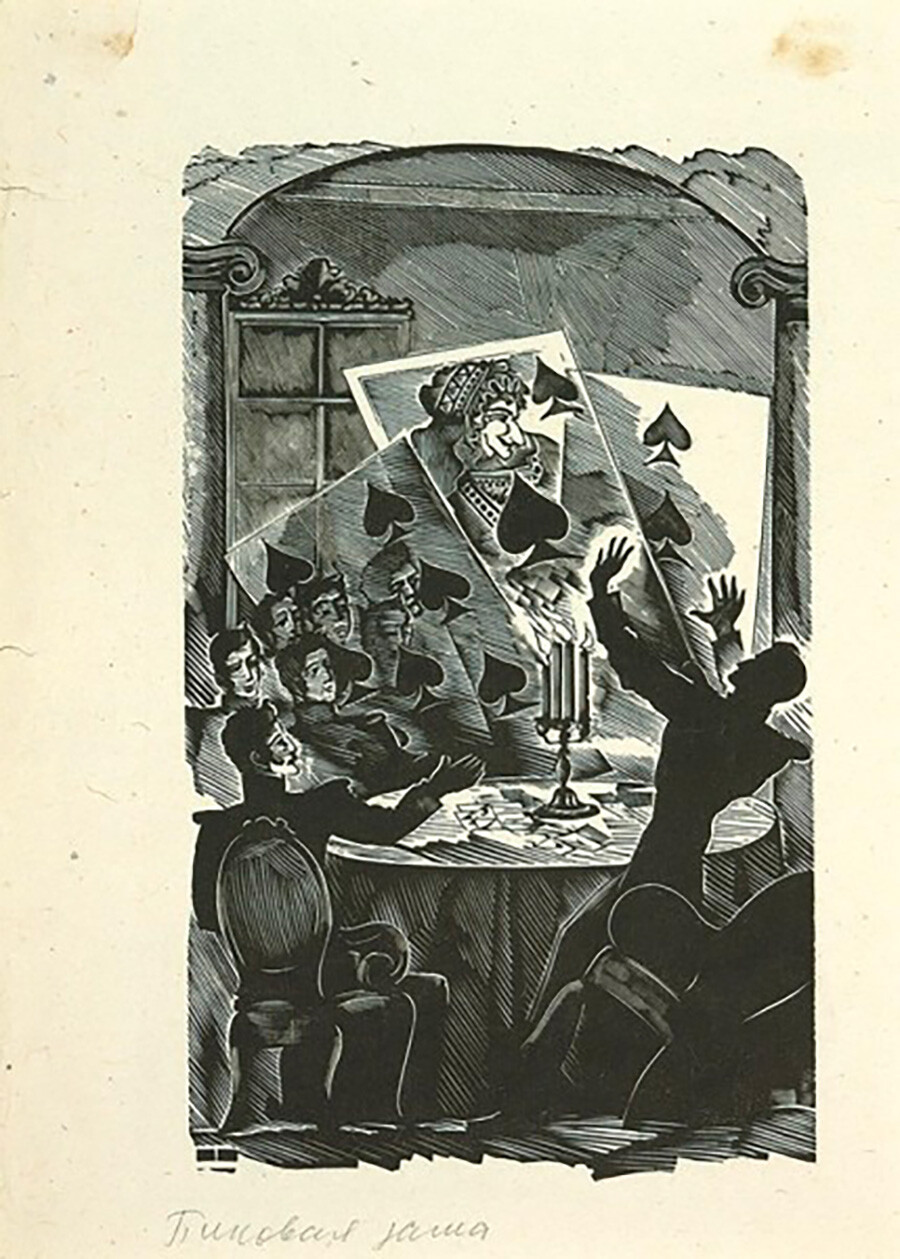
Learning the secret of three cards, Hermann forgets about everything but the gambling. He becomes obsessed with the combination of three, seven and ace. He takes his entire savings to a gambling salon where men play the game of faro for high stakes.
On the first night, Hermann bets it all on the three and wins. On the second night, the man bets everything he has plus his last winnings on the seven and wins again to the outrage of the salon’s owner.
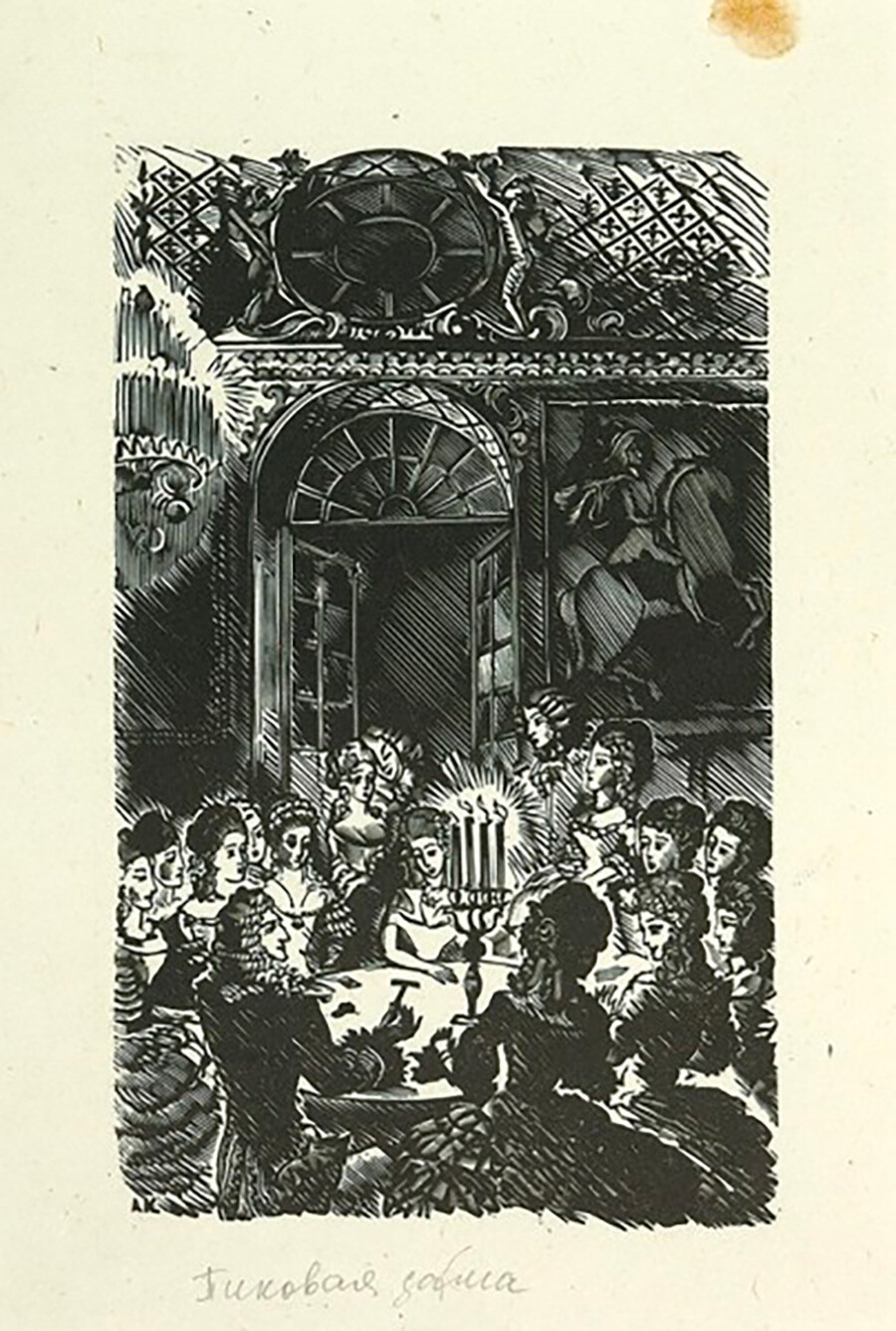
On the third night, Hermann comes back to the salon and everybody stops gambling to see Hermann’s unbelievable play. As instructed by the ghost of the old countess, Hermann bets everything on the ace. However, when he opens his hand, he sees the queen of spades instead of the ace. It is not clear to the reader whether Hermann accidentally makes a mistake picking the queen of spades instead of the winning ace, confused by its frightening similarity to the old countess, or if the supernatural intervention changes the winning card for the losing queen of spades.
Nonetheless, Hermann loses everything and flees the salon in terror. In a short epilogue, the author reveals that Hermann goes mad and is committed to an asylum. The readers also learn that Lizaveta is happily married to a state official who makes a decent salary.
Alexander Pushkin wrote the story in 1833 and published it the following year. The tale of human greed and the supernatural became immensely popular with the readership in Russia and Europe, inspiring operas by Russian and French composers, including Pyotr Tchaikovsky.
In ‘The Queen of Spades’, Pushkin tells a story about human vices like greed, indifference and hypocrisy, as well as a desire to get rich without much effort.
The seemingly self-disciplined character of Hermann falls victim to the vices that lurk in his heart long before he hears about the old countess and her secret. Tempted by the prospect of enrichment, Hermann breaks the heart of the young woman and feels no regret. He causes the death of the old countess, but has no remorse. Eventually, he is deprived of everything because of his selfishness and greed.
Surprisingly, the inspiration for the story came from real-life characters: a Russian noblewoman named Natalya Golitsyna and her grandson who, according to a legend, came to his grandmother for help after losing a considerable amount of money playing cards. The legend has it that the old noblewoman revealed to her grandson the secret of the three winning cards taught to her by Count Saint-Germain and, thus, saved him.
Dear readers,
Our website and social media accounts are under threat of being restricted or banned, due to the current circumstances. So, to keep up with our latest content, simply do the following:
If using any of Russia Beyond's content, partly or in full, always provide an active hyperlink to the original material.
Subscribe
to our newsletter!
Get the week's best stories straight to your inbox